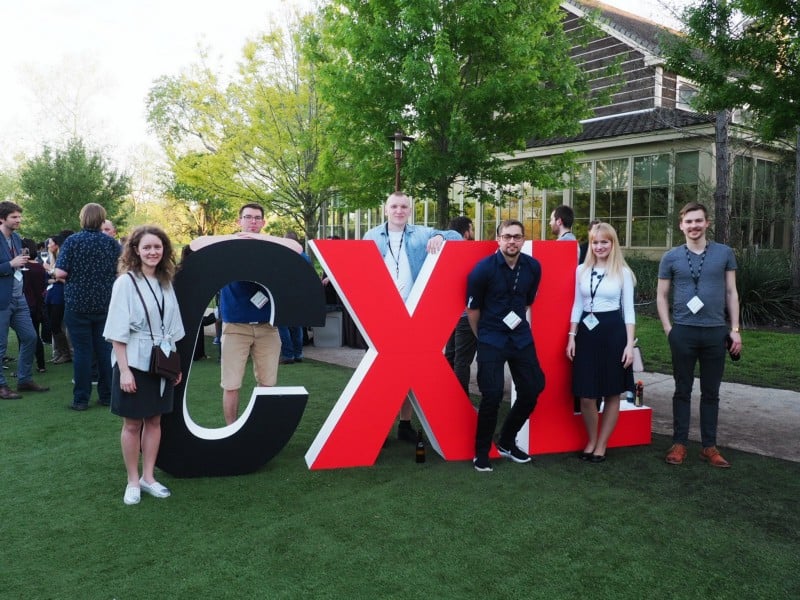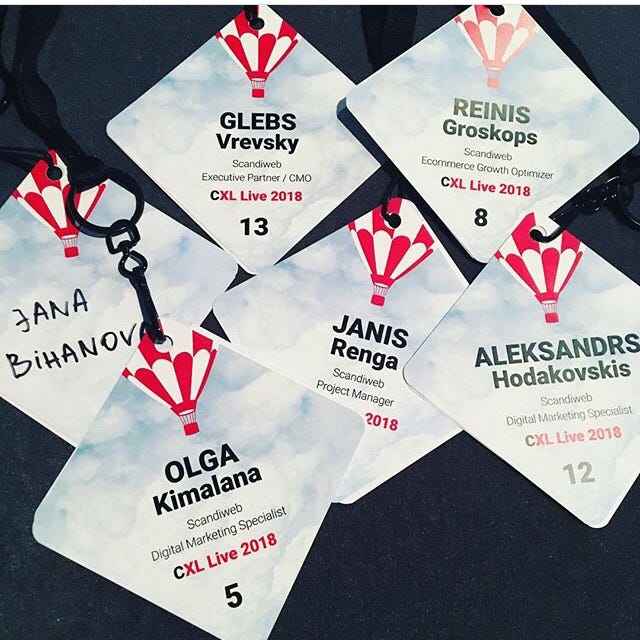At the end of March part of Scandiweb CRO team went to Texas, USA to participate in Conversion XL Live conference which gathers conversion rate optimization enthusiasts from all around the world.
For our team it was long-awaited event, therefore all of us were excited to be there. Why was it so important for us? Well, firstly, one of the first tasks at Scandiweb for any newcomer is to pass Conversion XL mid-degree program which gives you a huge insight into what optimization is and how to properly perform it.
Secondly, the speakers in the conference were well-known industry professionals that pay attention not only to details that are important today but also to things that will change website optimization tomorrow e.g. Bryan Eisenberg talked about expected changes in purchase behaviour when buy button will be replaced by voice.
The conference was held in a luxury resort far away from civilization, hence nothing distracted us from taking as much knowledge as possible. Except the strong thunderstorm in the first two days and the perfectly blue sky and 28 degrees on the last two days. As in total we heard 21 presentation about website optimization, business growth opportunities and strategies, A/B testing and web analytics, it would be time-consuming to describe and read all the takeaways from every speech.
However, the main thing we all should remember is the old truth that without research there is nothing. Even though this particular phrase was said only once by Els Aerts who spoke about the importance of user research we could hear the same idea in other presentations as well. Just from a different perspective.
Bangaly Kaba from Instagram explained that in time of user research they found that 80% of users are outside of USA and most of them have mobile phones without advanced screens, hence a lot of attention should be paid to improve this kind of user experience.
In the same time, Vab Dwivedi from Dell told that A/B tests helped them to realize that the best practices might not always work and everything should be tested. For example, the best practices might suggest to add filters on Category page on the left sidebar. As Dell had them on top of page, they made an A/B test to see how it would change page performance. Results showed that by implementing best practice the conversion rate would drop by 7.5%.
Another interesting example that proves the importance of research was given by web analyst Moe Kiss who works for Australian fashion brand The Iconic. Her deep research helped to realize that sometimes data might lie about actual user behaviour on the website. One of the key findings after research was that many users use mobile to check products, to add them in wishlist or share them with others while the last step — payment — they like to make on a bigger screen — desktop. Although the customer made a purchase, Google Analytics would add data of two separate users of whom one didn’t make a purchase. Therefore, we all should analyze data carefully and with critical perspective in mind.
Speech from Alex Hubley motivated us to use not only traditional research methods when analyzing user behaviour. In her example, she watched romantic comedies to understand that segmentation helps to achieve intimacy with every client, humour will create emotional engagement and that by making client feel special, the company will earn their trust. I should mention that guys enjoyed watching episodes from romantic comedies way less than girls.
One more interesting topic that sometimes appeared among others was education of employees. Companies like Booking.com, Airbnb or Google pay a lot of attention to educate newcomers and existing employees. They have clear and well-structured documentation that allows everyone to understand where they should start, how the task should be performed and what the result should be. They have special learning programs and technologies to develop their own projects. The main insight — to do the best you have to understand the basics at your best.
This was just a short intro of what we heard and experienced. To find your own takeaways, visit the links below, view the presentations, read the notes and watch a video that describes everyday life of website optimizer:
A list from CXL on top 5 takeaways from the conference
If you want to hear more from us, write to the Scandiweb CRO department at [email protected]




Share on: